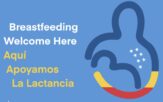Breastfeed Durham is a health equity advocacy group that supports all families in our area, including those who identify as LGBTQ+ and those who exclusively pump. We celebrate every amount of human milk whether received by breast/chest, given by bottle, or provided by another method. We believe that all families should have access to affordable human milk. It is our hope that every type of family in Durham understands the benefits of breastfeeding, and then makes educated and informed decisions that are right for them, be it as a birth parent, surrogacy, or adoption, regardless of gender.
Annual Family Planning Fair
Information about the 2025 event coming soon!

Mission
Our mission is to provide breastfeeding education and resources to all families in the Durham community, as well as advocate for policies that protect nursing families’ rights. We want to listen, learn, and collaborate. We want to help spread a broader net of visibility so that we all can see ourselves represented providing human milk to our babies and receiving the support that that takes. Please contact Amber Crews, chair of LGBTQ+ Human Milk Feeding with Breastfeeding Family Friendly Communities of Durham(BFFC). If you have local resources to contribute, are interested in joining this coalition or need some extra Community-specific support.

Tools, Resources, and Support
- Directory of Local Support: Local lactation support for LGBTQ plus families and medical providers; a list of IBCLC’s that are LGBTQ plus friendly.
- National lactation support resources for LGBTQ plus families
- National lactation support resources medical providers
Continued Development
- Thinking about the Breastfeeding Family Friendly Communities 10 steps…
- As advocates for LGBTQ+ Families…..
- What are advocates wishing for LGBTQ+ Human Milk Feeding?
- What is Breastfeed Durham doing right?
- What are the opportunities for growth and improvement?

Ten-Steps
- The community’s elected or appointed leadership has a written statement of policy supporting human milk feeding.
- The community provides a welcoming atmosphere for human milk feeding families.
- Early and Exclusive human milkfeeding for up to 6 months and continued human milk feeding for at least a year are encouraged.
- During pregnancy, all families in the community are informed about the benefits of human milk feeding and where to access support as needed.
- Health care in the community is human milk feeding-friendly.
- Non-health system human milk feeding support groups and services are fully available in the community.
- The business and social organizations in the community provide a welcoming atmosphere for human milk feeding families.
- Local businesses and healthcare clinics/offices follow the principles of the International Code of Marketing of Breast-Milk Substitutes.
- The business case for lactation support is promulgated by the Health and Human Services and the Chamber of Commerce.
- Education systems are encouraged to include human milk feeding-friendly curricula at all levels.

